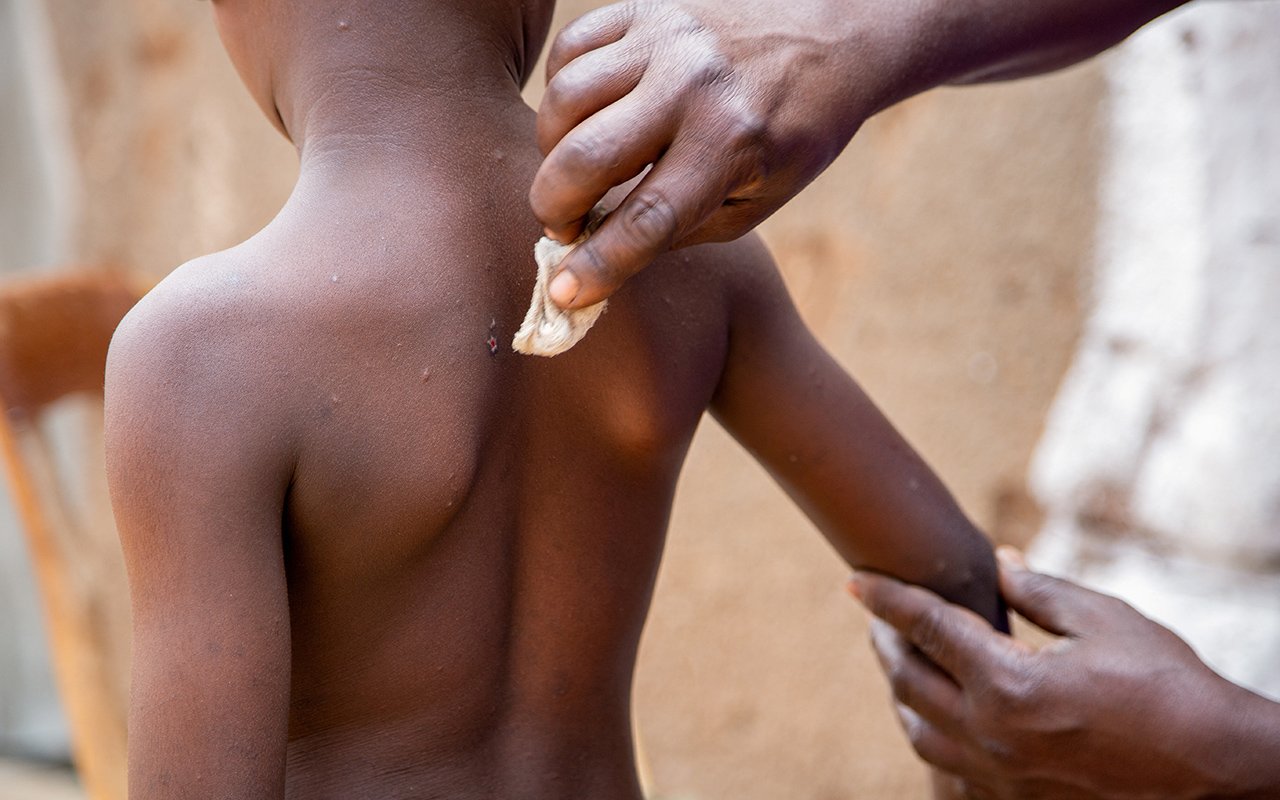US to donate 1 million mpox vaccine doses to halt outbreak in Africa

Monkeypox virus (MPXV), the virus that causes the mpox disease, is related to the virus that causes smallpox. PHOTO/Shutterstock
What you need to know:
- Mpox can spread through close contact.
- Usually mild, it is fatal in rare cases.
- It causes flu-like symptoms and pus-filled lesions on the body.
- Last week, Gavi said it will buy 500,000 doses of Bavarian Nordic's vaccine, its first purchase to help battle the outbreak.
U.S. President Joe Biden announced on Tuesday the donation of 1 million mpox vaccine doses and at least $500 million to African countries to support their response to the outbreak.
Biden made the announcement at the United Nations General Assembly in New York, and called on other countries to follow suit, confirming Reuters' earlier reporting.
"We must now move quickly to face mpox," Biden said.
In August, the World Health Organization declared mpox a global public health emergency for the second time in two years, following an outbreak of the viral infection in Democratic Republic of Congo that has spread to neighboring countries and beyond, including India, raising alarm.
"It wouldn't be a huge surprise if there were a case in the United States, either," a U.S. official said, noting that recent cuts in pandemic support by Congress may hamper a domestic response.
"We're really squeezing right now to be able to respond effectively in this moment. And I think anticipating potentially additional cuts in the future will make it more and more difficult for us to have a robust response to these types of outbreaks."
Mpox can spread through close contact. Usually mild, it is fatal in rare cases. It causes flu-like symptoms and pus-filled lesions on the body.
The outbreak in Congo began with the spread of an endemic strain, known as clade I. But a new variant, clade Ib, appears to spread more easily through routine close contact, including sexual contact.
Rich countries have several hundred million doses of vaccines that could help fight an mpox outbreak in Africa, where donated shots fall far short of what is needed, according to a Reuters tally of public statements, documents and estimates from non-governmental organizations.
The expectation is that the new U.S.-donated doses will be of the Bavarian Nordic BAVA.CO vaccine known as Jynneos in the United States, and many will come from a U.S.stockpile.
The U.S. official said the administration expects Gavi, a public-private alliance which co-funds vaccine purchases for low-income countries, to distribute the donated vaccines.
"We feel really strongly that Gavi is the multilateral institution that is best positioned to procure and equitably distribute vaccines," the official said.
Last week, Gavi said it will buy 500,000 doses of Bavarian Nordic's vaccine, its first purchase to help battle the outbreak.
The Biden administration is also pushing for more vaccines to be manufactured in low and middle-income countries, and is working with Brazil to identify how the Group of 20 club of nations can support the mpox response.
There is not currently a manufacturer in Africa that is able to make the complex drug substance needed to make the vaccine, the U.S. official said.
"Most meaningful is Biden's public support for manufacturing capacity in lower-income countries to produce their own vaccines," said Lawrence Gostin, an expert in global health law at Georgetown University. "That will require Biden to press pharmaceutical companies to transfer technologies."





